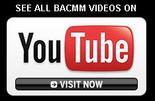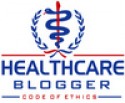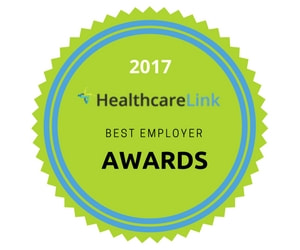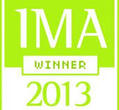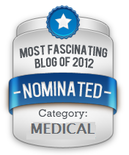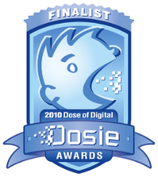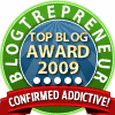Reprinted below is the sixth in a series of articles from our newest client, HeartMath, LLC, that deals with how stress impacts our lives and what can be done to relieve it.
In the 1950’s a noted researcher named Hans Selye popularized the term stress for the first time. Selye said: “Everyone knows what stress is, but in reality nobody knows.” Today, however, we are learning more about the underlying mechanics of stress as science helps to unravel the mysteries of emotions. HeartMath, a globally recognized authority on the physiology of and relationship between stress and emotions, has spent the last 17 years decoding the underlying mechanics of stress. HeartMath experts say the subtler day-to-day stressors are breeding an attitude of resignation towards stress. Stress can become engrained in our brain’s neural circuitry, forming unhealthy habits that drain us emotionally. HeartMath studies show we can significantly reduce the amount of stress we experience by understanding how our emotions work (www.heartmath.com).
Our accelerated lifestyle has contributed to a mindset that living with daily irritations, anger, frustration, low-grade anxiety, and hopeless feelings is normal. After all, many people you know feel this way. A recent survey conducted by the National Consumers League shows that adults are considerably more stressed now than they were five years ago or even one year ago.
Most of us have tried different approaches to dealing with our stress, but find we don’t have the time to stick with it, or maybe we feel a temporary relief but the stress returns soon after. Feeling we’ve run out of options, we tend to defer stress with the mind by talking ourselves into believing that’s just the way life is. Deferring stress is the same as resigning to stress or believing it’s a force we can’t change.
In a recent study conducted by Dr. Jean Twenge of San Diego State University and her colleagues, researchers observed a significant resignation in young people, with many kids feeling like nothing they do matters. The project studied more than 25,000 young people and found a strong increase in cynicism, helplessness and general negativity. Stress affects everyone from young children to adults, and experts are concerned that if we don’t put more emphasis on stress and the core emotional causes, we could be looking at a generation that will progressively develop a crystallized “whatever” attitude towards life.
HeartMath researchers say stress and emotions cannot be separated. Dr. Rollin McCraty, director of research for the Institute of HeartMath, says, “Ongoing low-grade stress can do more harm to the body, mind, and emotions than one large stressful event can.
“We’ve studied the physiology of stress in thousands of people of all ages over the last seventeen years. One common factor we’ve observed is that although someone can ‘think’ they’re not stressed or defer it as just an irritation or a low-grade anxiety, the stress reaction has already been triggered. The body is responding more strongly to what the person really feels; the body registers even the subtler everyday irks and frustrations as stress.”
Psychologist Deborah Rozman, Ph.D., founding partner of the HeartMath System and co-author of Transforming Stress: The HeartMath Solution for Relieving Worry, Fatigue, and Tension, says, “The majority of people believe that emotions just happen to them. We haven’t been taught that we can shift out of stressful emotions. But it’s important to understand that stress is accumulated by carrying around unsettled or negative feelings without resolving them. The lack of understanding about how to address our emotions is one of the real causes for today’s stress epidemic.”
Our brain’s neural circuitry is designed to create habits to make it easier to perform tasks without having to think much about them. Each time you repeat a habit, whether an attitude, a behavior, or a repetitive task like driving a car, it becomes more reinforced and automatic. According to HeartMath researchers, the same is true with stress.
The subtler or more mechanical everyday emotional reactions tend to go unnoticed and accumulate. Experts say this eventually this leads to resignation, low-grade anxiety, and low-grade depression.
Dr. Rozman says, “Stress accumulates because we keep storage bins of emotional reactions to people and situations. These storage bins keep us reacting in the same old way over and over. We resign and feel that’s just the way it is, and continue to fill these storage bins with frustrations, hurts and resentments.”
The subtle stressors we tend to ignore are generally everyday occurrences. Dr. McCraty gives this example: “Have you ever received an email from someone you recently had a frustrating conversation with? As soon as you see the sender’s name you experience feelings of dread and irritation. The past experience triggers unresolved feelings about that person. The reason you feel this is because you’ve stored these feelings in your amygdala.”
McCraty explains that the amygdala is an almond-shaped neuro-structure in the brain. It stores emotional memories to help you make instant decisions and cross-references these memories to help you avoid a threat. For instance, if you were bitten by a dog as a child you might feel anxiety in the future when you see another dog. Or if you have accumulated feelings about a certain relative who treats you with disrespect, then each time they call, a feeling of irk gets triggered and you experience that accumulated stress all over again.
One way HeartMath experts say you can stop the negative emotional experiences from accumulating is to learn to track the more subtle emotional reactions. They suggest thinking of the emotions as sound effects. Your outer sound effects, such as sighs, swear words, negative humor, and expressions whispered under your breath can give you clues to the real feelings underneath. Your “inner sonics” like ugh, silent swear words, and feeling that things have “gone south” go on all the time and affect your next thoughts and choices.
Many people believe that the mind rules. But HeartMath results show that it’s our emotions that are shaping much of our thinking and, more often than not, determining our choices and behaviors.
Accumulated stress can actually prevent us from finding the creative solutions we need to better deal with stress. Whether an irritation triggered by a relative or co-worker, or low-grade anxiety triggered by current news events, HeartMath’s research shows that stress compromises our cognitive abilities. We can’t think as clearly or as creatively and we have a harder time making decisions.
Becoming more aware of the subtler or more mechanical everyday stressors – and learning to release the stress so it doesn’t accumulate in an emotional storage bin – will go a long way in helping people feel less emotional drain, stress, and anxiety.
HeartMath research has been distilled into simple strategies and learning programs that can significantly help to reduce stress. Fortune 100 companies are using HeartMath’s techniques and technologies to improve employee performance and lower organizational healthcare costs. Hospitals and healthcare organizations around the country are using the techniques and technologies to help employees and patients alike. HeartMath’s corporate and healthcare clients include Cisco Systems, Duke University Health System, Boeing, Liz Claiborne, Shell, Unilever, Ohio Hospital Association, and the Stanford Business School, among others.
One of HeartMath’s award-winning programs is called the emWave® PC Stress Relief System. This patented software program uses a special finger sensor that allows you to see in real-time on your computer monitor how your emotions are affecting you.
The program’s tutorial teaches the user HeartMath’s scientifically validated techniques. HeartMath results show that with even a little practice you’ll quickly learn to recognize the more subtle and mechanical stress reactions and how to transform them into productive and creative energy and solutions.
HeartMath also offers a handheld technology called emWave Personal Stress Reliever®, which also gives you the same real-time benefits with the convenience of being a mobile technology (www.emwave.com).
For more on the emWave PC Stress Relief System go to www.emwavepc.com.
Copyright © HeartMath. Since 1991 HeartMath has been dedicated to decoding the underlying mechanics of stress. HeartMath is internationally recognized for their solutions to transform the stress of change and uncertainty, and bring coherence and renewed energy into people’s lives. Research and clinical studies conducted by HeartMath have examined emotional physiology, heart-brain interactions, and the physiology of learning and performance. Through their research they have demonstrated the critical link between emotions, heart function, and cognitive performance. HeartMath’s work has been published in numerous peer-reviewed journals such as American Journal of Cardiology, Stress Medicine, and Preventive Cardiology, as well as business journals such as Harvard Business Review and Leadership Excellence. HeartMath’s organizational clients include NASA, BP, Duke University Health System, Stanford Business School, Redken, Kaiser Permanente, Boeing, and Cisco Systems, as well as dozens of school systems and thousands of health professionals around the world. To learn more about HeartMath, go to www.heartmath.com.

 RSS Feed
RSS Feed









